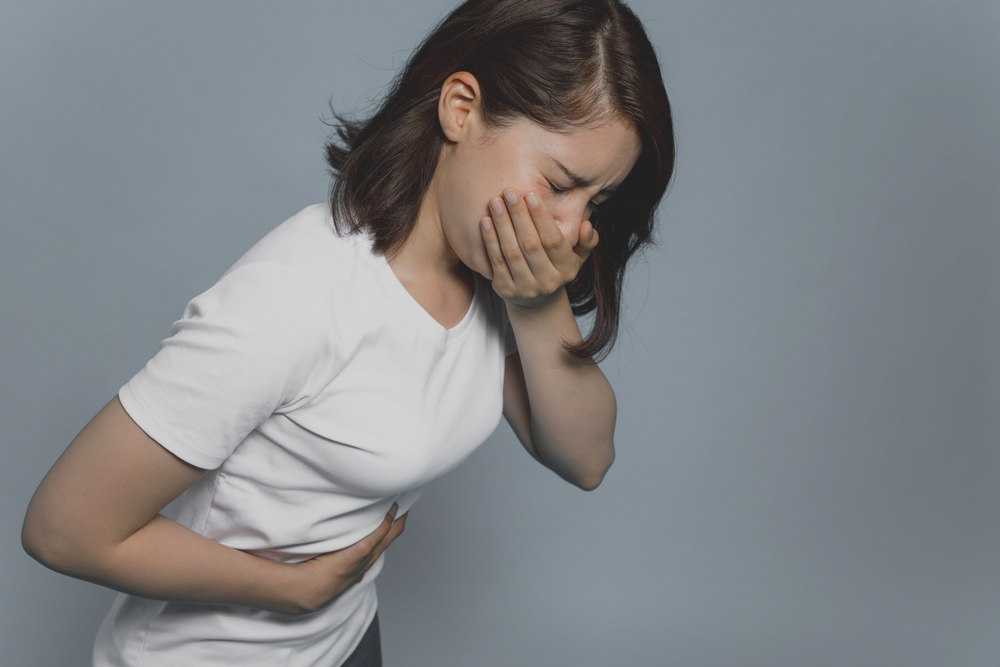Are you tired of feeling nauseous every time your period rolls around? You’re not alone. Many women experience nausea before or during their menstrual cycle, and it can be quite uncomfortable. But what exactly causes this unpleasant symptom? Here we’ll find out whether periods can cause nausea and explore the possible reasons behind it.
Contents
Can Periods Cause Nausea?

Nausea before a period is a common occurrence for many women. It is often attributed to a condition called premenstrual syndrome (PMS). However, what is considered “normal” can vary from person to person. While feeling nauseated before a period may be a regular symptom for some, it’s important to pay attention to any sudden changes in PMS symptoms, as they could indicate an underlying medical problem.
There are several factors that can contribute to nausea before a period. Some possible causes include:
- Premenstrual Syndrome (PMS): PMS is a collection of physical and emotional symptoms that occur in the days leading up to a menstrual period. Nausea, along with other symptoms such as headache, fatigue, and muscle aches, can be part of PMS.
- Cramps: Menstrual cramps, also known as dysmenorrhea, can cause nausea before and during your period. The contractions of the uterus can stimulate the release of certain chemicals that can lead to nausea.
- Pregnancy: Nausea is commonly associated with pregnancy, and it’s often referred to as morning sickness. While pregnancy nausea usually doesn’t start until at least six weeks into the pregnancy, it’s important to consider if you’ve had a missed period as well.
It’s worth noting that if your period nausea is caused by PMS, the symptoms should disappear a few days after you get your period. Similarly, if it’s caused by dysmenorrhea, the symptoms should last two to four days leading up to and at the start of your period.
Painful Cramps Can Also Cause Nausea
Experiencing nausea during your period can be attributed to a variety of factors. Apart from hormonal and chemical changes, another common cause of nausea during menstruation is dysmenorrhea, also known as painful menstrual cramps.
Dysmenorrhea occurs when the chemicals causing menstrual cramps in the uterus trigger a response in your body that can result in nausea. This is especially true if the cramps are severe or intense. The pain and discomfort associated with dysmenorrhea can sometimes radiate to other parts of your body, causing further discomfort.
Tips to Manage Nausea During Periods

1. Healthy Eating and Hydration
Maintaining a healthy diet and staying properly hydrated can play a crucial role in managing nausea during your period. Here are some tips:
- Eat small, frequent meals throughout the day to keep your blood sugar levels steady, which can help alleviate nausea.
- Opt for bland foods such as bananas, rice, toast, tea, and applesauce, which are gentle on the stomach and can ease digestive discomfort.
- Stay hydrated by drinking plenty of water. Dehydration can worsen symptoms, so make sure to sip water regularly.
2. Exercise and Physical Activity
Engaging in regular exercise and physical activity can help reduce period symptoms, including nausea. Here’s what you can do:
- Take a gentle walk or engage in light to moderate exercises for about 30 minutes. Exercise promotes blood flow and the release of endorphins, which can improve your overall well-being and alleviate nausea.
- Avoid smoking and limit your consumption of caffeine and alcohol, as they can trigger symptoms. Instead, prioritize rest when needed to give your body the time to recover.
3. Applying Heat and Taking Pain Relievers
Applying heat to your abdomen and taking over-the-counter pain relievers can provide relief from painful cramps and associated nausea. Consider the following:
- Use a heating pad or hot water bottle on your lower abdomen to increase blood flow and reduce pain.
- Consult with your doctor or pharmacist about suitable over-the-counter pain relievers. These medications can help alleviate cramps and minimize nausea symptoms.
Frequently Asked Questions
How do you get rid of nausea during your period?
To alleviate nausea during your period, sip on fluids, such as water or herbal teas. Ginger has been known to combat nausea, so try consuming ginger tea or adding ginger to your meals. Peppermint can also help with stomach discomfort. Other strategies include spending time in fresh air, applying a cold compress to your abdomen, and consuming small, bland snacks. Light exercise, like gentle stretching or walking, can also improve symptoms.
How long does period nausea last?
Period nausea typically lasts for a day or two. Many women experience nausea or the feeling of vomiting just before or during their periods. These symptoms are usually caused by hormone changes in the body. If the nausea persists for an extended period of time or is severe, it is advisable to consult with a healthcare provider to rule out any underlying conditions.
Why do I feel nauseous during my period?
Feeling nauseous during your period is often a common symptom of pre-menstrual syndrome (PMS). Hormones, particularly prostaglandins, that circulate in the body during this time can cause nausea, vomiting, diarrhea, and headaches for many women. While mild nausea is typically considered normal, it is important to seek medical advice if the symptoms are severe or interfering with daily activities. Consulting with a healthcare provider can help identify any underlying issues and provide appropriate treatment options.
I am a medical student with experience and interest in Women’s health and well-being.